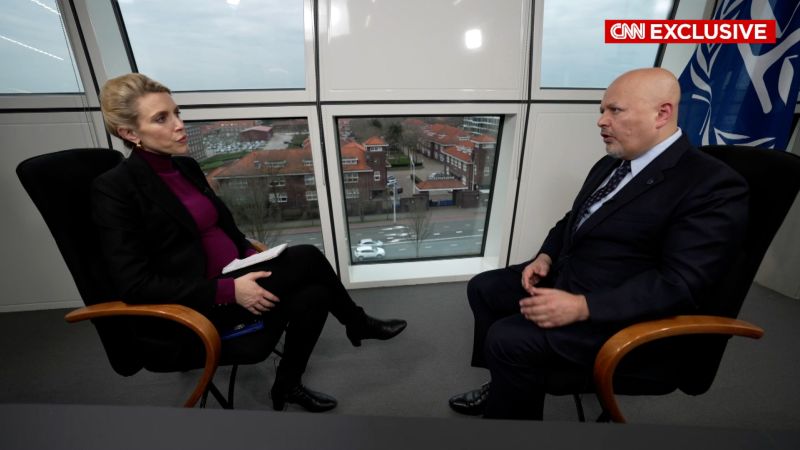If you only just started paying attention to the inner workings of the media industry, you might think America’s information environment transformed overnight.
In the past few months, a president extracted settlements from media giants as his apparatchiks vowed state retribution against his opponents – all as they defunded public media at a time when the president’s biggest boosters own the algorithms that decide what information is amplified and suppressed.
Meanwhile, media companies are merging into ever-larger behemoths, some have muzzled White House critics as their companies seek presidential favors, and the White House is reportedly brokering a deal to hand yet another social media platform over to his billionaire allies.
And now, a media industry billionaire has placed CBS News under the control of the conservative provocateur Bari Weiss, who is empowered to shroud her culture war and oligarch-friendly economics in what she calls “journalism that is fair, fearless, and factual”.
But as abrupt as this Orwellian turn may seem, it is no sudden pivot – it is instead the culmination of a scheme launched a half-century ago by some of America’s most influential power brokers, as our new book Master Plan exposes. Sketched out in never-before-reported documents, this plot aimed to destroy accountability journalism and make news outlets into champions rather than adversaries of power.
If that seems like exaggeration, consider that almost exactly 50 years before Weiss’s appointment, CBS’s own president was boasting of his support for a conservative, antidemocratic political project and bragging about his efforts to shift his news division’s media coverage away from scrutinizing corporate power.
It was a harbinger of what was to come.
‘The national television networks should be monitored’
This untold story of American media began in the news business’s Watergate-era transition. In the first half of the 20th century, journalism had swung between the triumphs of investigative reporting and the excesses of Citizen Kane-like oligarchs wielding their media properties as political weapons. But by the early 1970s, the pendulum was swinging back toward the muckrakers – journalism had once again become a problem for the ruling class, exposing national security and corporate scandals – and giving a platform to advocates like Ralph Nader who were holding power accountable.
Irate about Nader and other troublemakers, a prominent tobacco industry attorney named Lewis Powell penned a 1971 call to arms for the nation’s largest lobbying group, the Chamber of Commerce, and its corporate members.
He noted that “most of the media, including the national TV systems, are owned and theoretically controlled by corporations which depend upon profits, and the enterprise system to survive” – and that therefore they should start deliberately amplifying defenders of the status quo, and stop providing platforms to critics of big business.
“Much of the media – for varying motives and in varying degrees – either voluntarily accords unique publicity to these ‘attackers’, or at least allows them to exploit the media for their purposes,” Powell wrote. “The national television networks should be monitored in the same way that textbooks should be kept under constant surveillance. This applies not merely to so-called educational programs, but to the daily news analysis, which so often includes the most insidious type of criticism of the enterprise system. Whether this criticism results from hostility or economic ignorance, the result is the gradual erosion of confidence in business and free enterprise.”
In this now-infamous Powell memo, he implored corporations to bring their grievances to the Federal Communications Commission, which could threaten to take action against media outlets refusing to toe the corporate line (sound familiar?). And he decried what he depicted as corporate critics’ dangerous infiltration of media conglomerates.
“As these bright young men from campuses across the country seek opportunities to change a system which they have been taught to distrust – if not, indeed ‘despise’ – they seek employment in the centers of the real power and influence in our country, namely: with the news media, especially television,” he wrote.
Just a few months after Powell penned his memo, then president Richard Nixon nominated him to the US supreme court, where he would engineer rulings equating money to constitutionally protected speech, extend those constitutional protections to corporations aiming to buy elections, and defang antitrust law.
After Powell was first confirmed by the Senate, CBS News anchor Walter Cronkite emceed his sendoff party. As Philip Morris executives gave Powell judicial robes emblazoned with tobacco logos, Cronkite narrated a faux radio drama valorizing Powell’s life – all of which was recorded on a vinyl record that we discovered.
The event signaled how closely involved the media establishment would soon become in Powell’s conservative political project.
‘Correct the situation at CBS News’
Powell’s memo prompted the Chamber of Commerce to create a taskforce to implement its directives for corporations to begin spending heavily on politics, advertising and thinktanks, building what we now know as the modern conservative movement. Rather than deploying journalists to expose that new master plan, some of the nation’s largest media outlets and their sponsors joined it.
According to a document obtained by the Lever, members of this taskforce included CBS vice-president Richard Jencks, ABC executive James Hagerty, newspaper magnate Edward Scripps II, Metromedia executive Mark Evans, Ad Council chair Barton Cummings and Hill & Knowlton president James Cassidy.
In correspondence with a local media president enthusiastic about implementing the Powell memo, CBS’s then president, Arthur Taylor, wrote that he was actively pressuring CBS News journalists to make their coverage more pro-business.
“[The memo] makes good reading, and it is in accord with my own thinking that our free enterprise system is indeed in danger, not only due to the misunderstanding in academic circles, but I might also add the misunderstanding in media circles,” Taylor wrote of the Powell memo. “I’ve been attempting as persuasively as possible for the last year to correct the situation at CBS News with some results, but I’m afraid it’s going to take a long time.”
Taylor then added: “I hope we can have an opportunity to discuss methods by which we might accelerate what is obviously a very important movement.”
Forwarding Taylor’s letter to a conservative activist, the local media executive wrote that “Taylor has achieved some results and, hopefully, we can help him and others in his position, accomplish more”.
Around this time, in 1973, the future Fox News impresario Roger Ailes delivered a presentation to a meeting of business leaders enthusiastic about implementing the Powell memo. A college president in attendance wrote that “Ailes outlined the power which advertisers would be able to exert upon TV programming if they were moved to do so” in support of their political goals – and he said that members of the Chamber of Commerce should hire Ailes and focus on “where and how they can apply leverage and be given the tools to exert the leverage”.
The following year, Ailes landed a job running TVN, a Fox News forerunner controlled by Joseph Coors, the conservative beer magnate who said he had been “stirred” into political philanthropy by the Powell memo. Like Weiss today, Ailes had no experience running a television newsroom – which apparently made him an attractive candidate to lead a political project masquerading as journalism.
“The Coors people trust Ailes because of his affiliation with Republicans – and because he’s not a newsman,” one TVN staffer said at the time. “They don’t trust newsmen.”
In 1974, the Chamber of Commerce convened a secret meeting to review all the ways the Powell memo acolytes were leveraging media to build the conservative movement. According to the meeting minutes obtained by the Lever, the chamber’s members were:
-
Creating a “new motion picture [that] is being seen by tens of thousands” – which led to a film starring Jimmy Stewart promoting free-market capitalism;
-
Producing “a series of television shows to present business views on vital issues” that would be “for use on the Public Broadcasting network and elsewhere”;
-
Publishing “a FAIR media handbook – particularly to help those in business communicate with press, radio, and television. It describes how business can generate fair, accurate, and informed reporting”;
-
Promoting “a weekly column – discussing timely topics [that] goes to more than 500 press and 300 radio and television outlets”;
-
Writing “monthly editorials – for print and electronic media – used by 70 television, 225 radio stations, plus 300 newspapers”;
-
Distributing “radio voice actualities and television news clips – for major networks and news services”.
Meanwhile, the Powell memo taskforce member Barton Cummings used his Ad Council position to launch a nationwide government-sponsored advertising campaign in partnership with then president Gerald Ford’s administration and major corporations to defend free-market capitalism against its critics.
All of these efforts were the seeds of what was to come. As the conservative movement built its political power, its champion, Ronald Reagan, soon killed the fairness doctrine that had required time for contrasting political content – a move that birthed the rightwing talk radio monopoly.
When the Democrats regained power, Bill Clinton joined in by signing legislation deregulating the media industry so that a handful of megacorporations (and now tech companies) could buy up and control most of what we read, see and hear from news media.
George W Bush’s administration then further loosened local media ownership rules, allowing for even more consolidation.
At key moments along the way, media conglomerates backed down amid corporate pressure, avoided stories that Wall Street wanted hidden and parroted government lies. And with media industry consolidation and mass layoffs of local journalists, oligarchs and government leaders could more easily narrow the political discourse, knowing that dissenting viewpoints would be shadowbanned or simply shut out – and have nowhere to make inconvenient reporting heard.
Of course, every now and then, the sound of protest managed to slip through the matrix. For example, just after Clinton signed the bill accelerating media mergers, Saturday Night Live writers managed to slip this Schoolhouse Rock spoof about media consolidation on to the national television airwaves. It was promptly erased from all future reruns.
In the Trump era, there is no longer any attempt to obscure what’s really going on. Nine years ago, as Trump was starting his authoritarian ascent and bashing journalists, CBS’s CEO didn’t sound an alarm – he instead seemed thrilled, declaring that the circus-like environment “may not be good for America, but it’s damn good for CBS”. Critics such as Senator Bernie Sanders of Vermont were once mercilessly ridiculed for suggesting that billionaire owners politically influence their media properties – but today that influence is on display for all to see. Few even bother to pretend that all the media industry mergers, defunding, purges and surrenders have nothing to do with oligarchs’ self-serving ideological project.
Quite the opposite – if you read between the lines, it’s almost as if they are bragging about their role in the movement Powell ignited. Indeed, Weiss’s own Substack – which was reportedly sold to CBS’s parent company for $150m – just published an essay from a former News Corporation executive and e-cigarette company executive effusively valorizing Powell. In that Free Press hagiography, Powell is presented not as a zealot who published an ideological manifesto and sculpted radical precedents legalizing corruption. Instead, he is depicted as “thoughtful, measured, and willing to listen to others” as well as “less partisan and more cautious” than other jurists.
That kind of historical revision may land Powell his own bust in Trump’s proposed National Garden of American Heroes – but it will not succeed in obscuring what Powell actually helped create. Everyone can see the transformation of media that he envisioned. It’s right there in our faces – which means we can start calling all of this what it has always been: not merely a crass short-term business play, but a decades-long effort to destroy whatever’s left of the fourth estate that is supposed to deter authoritarianism.
“If we don’t break up the anti-free speech media monopolies, we will lose our democracy,” Senator Chris Murphy of Connecticut wrote recently. “I wish the billionaires that own these companies cared about democracy more than getting rich. But they don’t. They are willing to help destroy free speech so they can buy a bigger private jet. Media monopoly and autocracy do go hand in hand. And so we need a remedy.”
-
The Lever’s David Sirota and Jared Jacang Maher are the authors of the new book Master Plan: The Hidden Plot to Legalize Corruption in America









 English (US)
English (US)